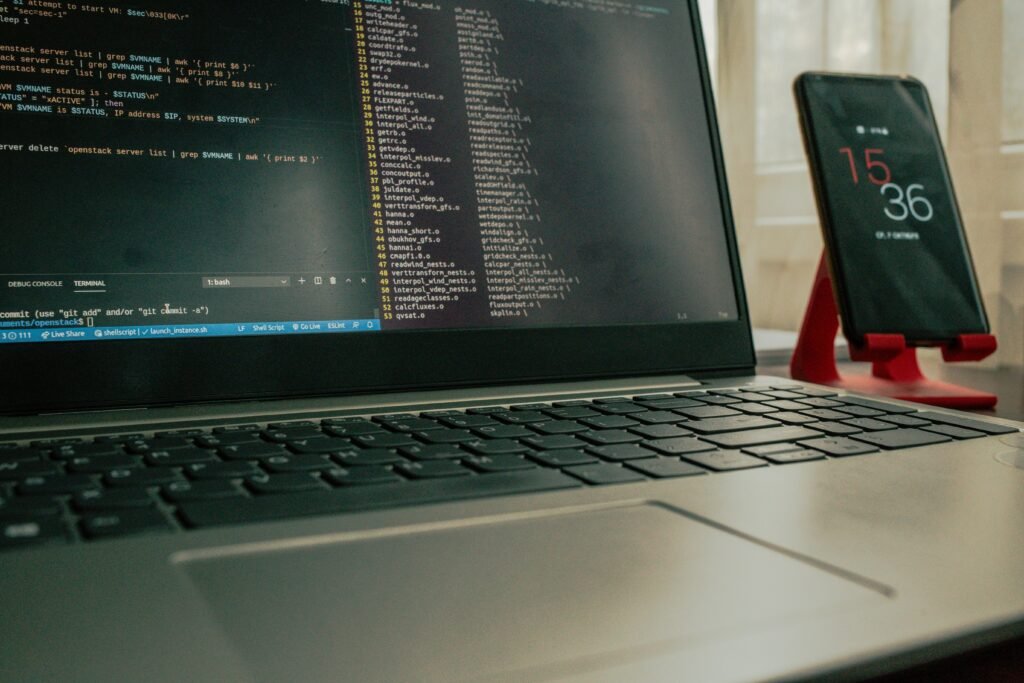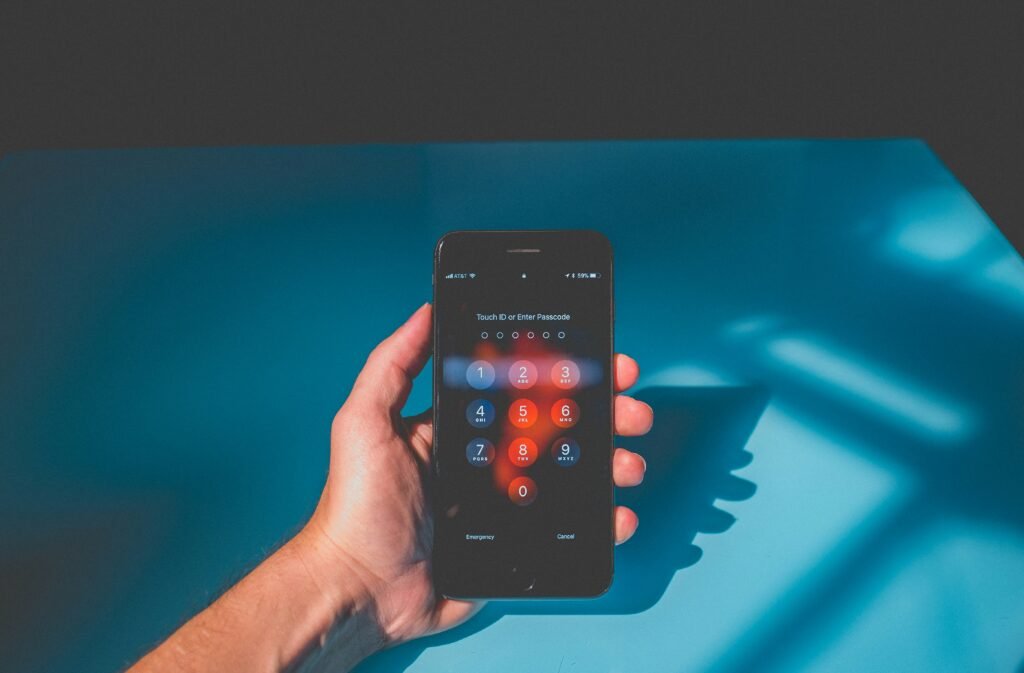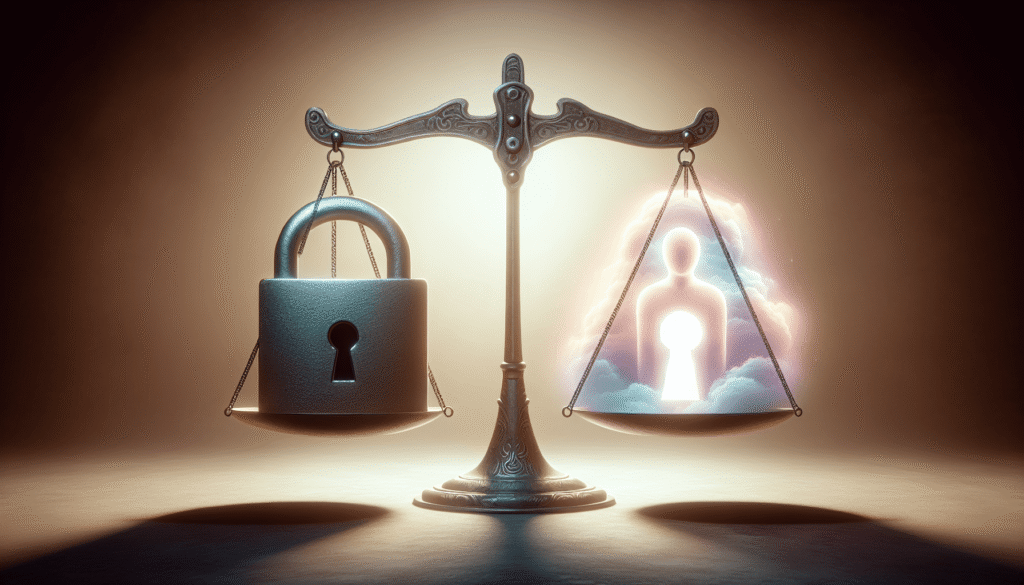Can you achieve the delicate balance between security and privacy in your everyday life? It’s a question that many people ponder as they navigate the complexities of the digital age. Striking this balance is crucial because while both security and privacy are essential, they often seem to be in conflict with each other.

This image is property of images.unsplash.com.
Understanding Security and Privacy
Before exploring whether you can have both, it’s important to grasp what each term really means. Security refers to measures that protect your data from unauthorized access, ensuring that only those who have permission can use or view it. On the other hand, privacy is about your right to control your personal information and have a say in when, how, and to what extent your personal information is communicated to others.
Defining Security
Security is a broad term that encompasses a range of practices, technologies, and strategies used to protect data and systems. It involves encryption, firewalls, anti-virus software, multi-factor authentication, and more. Security focuses on defending against cyber threats, hacking, and data breaches, ensuring that your data remains confidential and intact.
Defining Privacy
Privacy, on the other hand, is your right to keep your personal information to yourself. It’s about having control over who accesses your data and for what purpose. Privacy is closely related to concepts like anonymity and confidentiality, and it ensures that your personal life remains private, even in a connected world.
The Intersection Between Security and Privacy
Often, security and privacy intersect but don’t always align. For example, enhancing security by collecting more data about users for better protection can infringe upon personal privacy. You might wonder, is it possible to enhance one without compromising the other?
Balancing Act
The key to having both lies in striking a balance. By understanding your personal priorities and risk tolerance, you can make informed decisions or find solutions that safeguard against threats while respecting your privacy. It’s about finding that sweet spot where you feel both secure and private.
Why It’s Challenging
Achieving both security and privacy can be challenging because they sometimes require trade-offs. For example, using strong security measures might mean collecting more personal information or being more transparent about your activities, which could infringe on your privacy. Conversely, maintaining complete privacy could limit the effectiveness of certain security measures.
The Role of Personal Devices
Your personal devices, such as smartphones, laptops, and tablets, are at the forefront of your battle for security and privacy. They store a vast amount of your personal information, and securing them is essential.
Smartphones and Privacy
Smartphones are a treasure trove of personal information, from your contacts and messages to your location and browsing history. Protecting your smartphone involves encrypting your data, using lock screens, and being cautious about app permissions.
Laptops and Security
Your laptop is another critical device when it comes to security. Regular updates, strong passwords, and robust anti-virus software are key components for maintaining security on your laptop. However, these measures can sometimes come at the cost of privacy, such as when using certain cloud services that require data sharing.
Online Security and Privacy
In the digital world, online security and privacy are paramount. With the increasing amount of data shared online, understanding how to maintain both is more crucial than ever.
Online Security Measures
Online security involves using strong passwords, enabling two-factor authentication, and being cautious about the information you share online. Regularly updating your software and operating systems can also help protect against vulnerabilities.
Navigating Privacy Online
To maintain online privacy, consider using VPNs (Virtual Private Networks) or encrypted messaging apps. These tools can help keep your data private by masking your IP address or encrypting your messages. However, using a VPN can sometimes lead to slower internet speeds, which is a trade-off that users must consider.

This image is property of images.unsplash.com.
The Impact of Social Media
Social media platforms often pose challenges to privacy. It’s important to understand how these platforms use your data and what you can do to protect yourself.
Understanding Data Usage
Social media companies collect vast amounts of data to tailor content and advertisements. This can infringe upon your privacy, as it involves tracking your activity and preferences. Being aware of what data is being gathered and how it is used is critical to maintaining privacy.
Setting Privacy Controls
Most social media platforms offer privacy controls that allow you to manage who sees your content and what data is shared. By understanding and effectively using these controls, you can protect your information while enjoying social media’s benefits.
Legal and Ethical Considerations
In addition to personal measures, laws and regulations play a crucial role in balancing security and privacy. Understanding these can empower you to advocate for your rights.
Privacy Laws
Many regions have implemented privacy laws that dictate how personal information must be handled by companies. For example, the General Data Protection Regulation (GDPR) in Europe gives individuals stronger control over their personal data. Familiarizing yourself with such laws can help you understand your rights and take action when necessary.
Ethical Implications
Beyond legal requirements, there are ethical considerations regarding how companies and individuals handle data. Ethical data usage involves transparency, obtaining consent, and ensuring data is used for its intended purpose without compromising individual privacy.

This image is property of images.unsplash.com.
Technology and Innovations
Emerging technologies and innovations can either enhance or undermine your security and privacy. Staying informed about these can help you navigate the digital landscape more effectively.
The Rise of Artificial Intelligence
AI and machine learning can improve security by providing real-time threat detection and prevention. However, they also raise privacy concerns, as these technologies often rely on large datasets, which can include personal information.
Blockchain Technology
Blockchain is another innovation that promises to enhance data security and privacy. By decentralizing data storage and using cryptographic methods, blockchain can provide secure transactions and protect personal information. However, it is essential to understand how this technology works and whether its implementation aligns with your privacy preferences.
Strategies for a Balanced Approach
To maintain both security and privacy, consider adopting strategies that prioritize each without compromising the other.
Educate Yourself
One of the most effective ways of balancing security and privacy is to stay informed. Understand the tools, technologies, and practices that can protect you. Awareness is your first line of defense against threats to both security and privacy.
Use Encrypted Services
Utilize services that offer encryption for data at rest and in transit. These ensure that even if your data is intercepted, it remains unreadable to unauthorized users. This can apply to everything from your email provider to your choice of messaging apps.
Policies and Preferences
Reviewing the privacy policies of the services and products you use allows you to make informed choices about how your data is used and secured. Make it a habit to adjust your privacy preferences according to your comfort level.

Conclusion
Achieving the balance between security and privacy is attainable with a thoughtful and informed approach. By understanding the nuances of each, exploring the tools available, and staying informed about technological and legal developments, you can enjoy the advantages of our connected world without compromising your personal security or freedom. Remember, the key lies in making informed choices and remaining vigilant about your digital footprint.
So, can you have both security and privacy? The answer is yes, with effort, education, and the right strategies, you certainly can.


